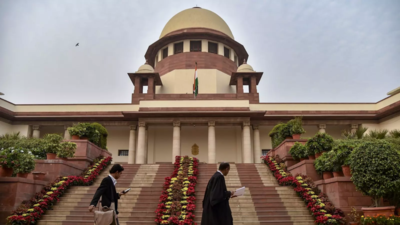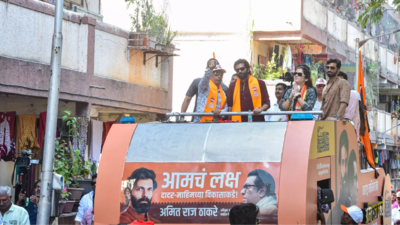
New Delhi: In another verdict defanging the stringent law of Prevention of Money Laundering Act and to protect honest public servants in discharging official duty, Supreme Court on Wednesday ruled that prior sanction of govt is needed to prosecute a govt employee in a money-laundering case and held that Section 197 of Criminal Procedure Code on sanction would be applicable in PMLA cases also. A bench of Justices Abhay S Oka and Augustine George Masih rejected the submission of the Enforcement Directorate that PMLA provisions have an overriding effect over the provisions of the other statutes, including the CrPC on the issue of sanction. Extending the ambit of Section 197(1) to PMLA on money laundering cases, the bench said the object is to protect the public servants from prosecutions and to ensure that they are not prosecuted for anything they do in the discharge of their duties.
"This provision is for the protection of honest and sincere officers. However, the protection is not unqualified. They can be prosecuted with a previous sanction from the appropriate government.
" the bench said while dismissing the plea of the agency. "Section 65 makes the provisions of the CrPC applicable to all proceedings under the PMLA, provided the same are not inconsistent with the provisions contained in the PMLA. The words 'All other proceedings' include a complaint under Section 44 (1)(b) of the PMLA.
We have carefully perused the provisions of the PMLA. We do not find that there is any provision therein which is inconsistent with the provisions of Section 197(1) of CrPC. Considering the object of Section 197(1), its applicability cannot be excluded unless there is any provision in the PMLA which is inconsistent with the Section 197(1).
No such provision has been pointed out to us. Therefore, we hold that the provisions of Section 197(1) of CrPC are applicable to a complaint under Section 44(1)(b) of the PMLA," the bench said. .
Section 197(1) says that when any person who is or was a Judge or Magistrate or a public servant not removable from his office save by or with the sanction of the Government is accused of any offence alleged to have been committed by him while acting in the discharge of his official duty, no Court shall take cognizance of such offence except with the previous sanction. The agency contended that Section 71 of PMLA has an overriding effect over the other statutes, including the CrPC and the requirement of obtaining a sanction under will be inconsistent with the provisions of the PMLA . It said the act of money laundering could not be considered to have been done in the discharge of official duties which needed protection.
But the bench was not convinced and quashed prosecution of a senior bureaucrat for want of sanction. "Section 65 is a prior section which specifically makes the provisions of the CrPC applicable to PMLA, subject to the condition that only those provisions of the CrPC will apply which are not inconsistent with the provisions of the PMLA. Therefore, when a particular provision of CrPC applies to proceedings under the PMLA by virtue of Section 65 of the PMLA, Section 71 (1) cannot override the provision of CrPC which applies to the PMLA.
Once we hold that in view of Section 65 of the PMLA, Section 197(1) will apply to the provisions of the PMLA, Section 71 cannot be invoked to say that the provision of Section 197(1) of CrPC will not apply to the PMLA," the bench said..














